Student Paper Competitions Award Winning Abstracts
Congratulations to the student paper competition award winners! The student paper competitions awards are proudly sponsored by the Special Problems Divisions.
COMMUNITY RESEARCH AND DEVELOPMENT DIVISION
Winning Title: "Women’s Political Engagement in a Mexican Sending Community: Migration as Crisis and the Struggle to Sustain an Alternative"
 Author: Abigail Andrews
Author: Abigail Andrews
Affiliation: University of California, Berkeley
E-mail: abigailandrews@berkeley.edu
Abstract:
Although early research on gender and migration associated Mexican women’s “empowerment” with moving to the U.S., recent studies show that living as an immigrant can constrain women and exacerbate gender inequalities. Others note that women can also gain power within formerly patriarchal sending sites, particularly when they “fill in” to positions vacated by migrant men. Here, by looking at the political arena rather than the household and highlighting women’s return migration, I bridge these two sets of research. I examine the case of San Miguel, a Mixtec migrant sending community in Southern Mexico where, over the course of the 1990s, once-excluded women came to predominate in civic affairs. I show that while several women went to the United States to work, being there made them feel exploited and abused. They responded by rejecting the life of migrant “illegality” and returning home. Then, to support their village, they “filled in” to local government posts. Because male migrants also hoped to return, they supported this shift. For both, changing the gender dynamics of politics offered a strategy to sustain valued traditions and avoid assimilating into an undocumented underclass.
CONFLICT, SOCIAL ACTION, AND CHANGE DIVISION
Winning Title: “Convincing People to Go Green: Managing Strategic Action by Minimizing Political Talk”
 Author: Janet A. Lorenzen
Author: Janet A. Lorenzen
Affiliation: Rutgers University
E-mail: jlorenzen@sociology.rutgers.edu
Abstract:
I investigate the strategy and tactics used by environmentally conscious actors to convince people to change their lifestyles and become more environmentally responsible. I draw on data from 45 in-depth interviews and participant observation with three groups: (1) voluntary simplifiers, (2) religious environmentalists, and (3) green home owners. Aware of the public’s aversion to discussing volatile issues like climate change, informants distance themselves from their in-group discourses and instead focus on changing practices while downplaying political ideas and engagements. This is part of a pragmatic lifestyle change strategy which unites several persuasive techniques including: tailoring appeals to particular audiences, making ‘I’ statements, being role models, highlighting financial rewards like the ‘win-win’ proposition, and the rare environmental appeal. I discuss how informants manipulate the lack of public political talk to their advantage in order to reach a wider audience. In this case, avoiding politics is not only active, but strategic.
1st Runner-up: “Be a Good Shopper, or Shop for Good? Non-Monetary Costs of Socially Responsible Purchasing”

Affiliation: Erb Institute for Global Sustainable Enterprise
E-mail: edavsch@umich.edu
Abstract:
Far fewer people incorporate concerns about social and environmental problems into purchasing decisions—a practice that I term “socially responsible purchasing”—than express an intention to do so. Efforts to account for this “concern-action gap” have left significant variation in socially responsible purchasing unexplained. Seeking to move beyond explanations that rely mainly on differences in consumers’ education and income, I argue that what it means to be a consumer, and the emotions and experiences associated with purchasing activities, shape whether and how social and environmental concerns are incorporated into purchasing decisions. I draw on interviews with a range of individuals to show that the experience of shopping as unpleasant, rushed and onerous presents significant impediments to reflection on ethical concerns and the emotional rewards of activism—even for people who are informed and concerned about social and environmental problems. Everyday shopping is thus an inhospitable environment for political action—but not for the reasons that critics of consumerism most often suggest. Rather, meanings and experiences matter precisely because they make so much shopping not fun, not engaging, and in doing so detract from the amount of time, energy, and trust that people are willing to invest in socially responsible purchasing.
CRIME AND JUVENILE DELINQUENCY DIVISION
Winning Title: “The Social Logic of Recidivism: Cultural Capital from Prison to the Street”
 Author: Liam Martin
Author: Liam Martin
Affiliation: Boston College
E-mail: liam.martin@bc.edu
Abstract:
Sociologists researching the causes of mass incarceration have focused on macro-level drivers of increases in the prison population (ie. Beckett, 1997, Garland, 2001, Wacquant, 2009), but paid little attention to the social processes that reproduce the institution by creating recidivism as a systemic feature of contemporary prisons. Existing research is dominated by quantitative criminologists who examine individual-level correlates of recidivism across thousands of people at a time. I develop a cultural capital model of recidivism, based on ethnographic research living at a halfway house and life history interviews with former prisoners. I argue that imprisonment produces lasting changes to the mind and body that follow people when released, changes that are dysfunctional in high-status institutions, but provide a ‘street capital’ that brings acceptance and income within street culture. In shifting the structure of rewards and opportunities facing released prisoners, the prison takes on magnetic pull: the last nationwide study by the Bureau of Justice statistics found that two-thirds of those released from state prison are back behind bars within three years (Langan and Levin 2002).
Honorable Mention: “(Dis)Empowered Rehabilitation: Governing through Alternative Practices and Therapeutic Interventions at a Women’s Reentry Center”
 Author: Colleen Hackett
Author: Colleen Hackett
Affiliation: University of Colorado at Boulder
E-mail: colleen.hackett@colorado.edu
Abstract:
This article examines how staff members at a gender-responsive, outpatient reentry center construct women's criminality and explain treatment outcomes. Staff members acknowledge the structural causes of women's criminality, yet during the process of rehabilitation this recognition is paradoxically replaced by a discourse of personal responsibility. By employing participant-observation methods and in-depth interviews with staff, this study demonstrates how the center's use of "alternative" practices and rehabilitative logics serve to disempower and pathologize women's lives. This research adds to our knowledge of punishment and governance by revealing how neoliberal strategies of self-regulation may take form in gendered, alternative spaces.
* This paper has recently been published with the journal Feminist Criminology. The article is entitled "Transformative Visions: Governing Through Alternative Practices and Therapeutic Interventions at a Women's Reentry Center," 2013 8(3):221-242.
DISABILITIES DIVISION
Winning Title: “Wheelchair Ramps in Cyberspace: The Americans with Disabilities Act and the Internet”
Author: Trevor Crowley
 Affiliation: Reuben Clark Law School - Brigham Young University
Affiliation: Reuben Clark Law School - Brigham Young University
E-mail: crowleyt@byulaw.net
Abstract:
In 1990 the Americans with Disabilities Act was enacted to protect disabled individuals from discrimination in a variety of forms. Despite these protections, many disabled individuals are not provided equal access to the World Wide Web. Title III of the Americans with Disabilities Act provides that “No individual shall be discriminated against on the basis of disability in the full and equal enjoyment . . . of any place of public accommodation." Some circuit courts interpret “place of public accommodation” broadly to include nonphysical places, while other circuit courts interpret this provision narrowly to require a physical tangible facility—putting virtual places like websites outside of Title III coverage. This unresolved circuit split culminated in the summer of 2012 when two nearly identical cases regarding website accessibility were decided by two different district courts with completely different outcomes. This Comment, published in the BYU Law Review, analyzes the circuit split and offers a solution that has not previously been considered to the issue of website accessibility. This solution, called “the storefront test,” would extend Title III of the Americans with Disabilities Act to a wide variety of websites without overstepping the textual bounds of the statute.
DRINKING AND DRUGS DIVISION
Winning Title: “Bad Apples: Recovery Narratives and Deviance in Methadone Maintenance Treatment (MMT)”
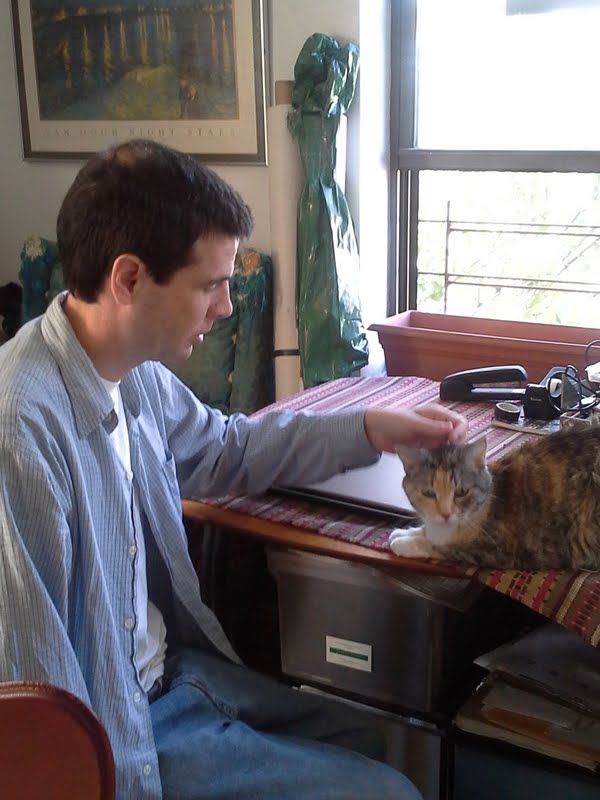 Author: David Frank
Author: David Frank
Affiliation: CUNY - Graduate Center
E-mail: dfrank40@gmail.com
Abstract:
Methadone Maintenance Treatment (MMT) patients maintain a diversity of views regarding the etiology of addiction and methadone’s role as a treatment strategy. Many conceptualize it as a form of harm reduction or a pragmatic strategy to escape problems associated with criminalization rather than a means towards abstinence-based recovery. Yet participants are increasingly forced to accept a recovery-based narrative focused on the wrongness of drug use and grounded in the disease model of addiction. This paper uses a participant observation methodology based on my own experience in MMT combined with data from online forums to examine how such narratives are used, both institutionally and by patients, to marginalize those described as deviant by the discourse. It also examines how recovery’s construction of methadone as medicine affects larger cultural narratives about drug addiction and treatment. The study finds that the recovery discourse is often used as a form of symbolic violence to distinguish between those who deserve treatment and others who are marginalized and disciplined, often leaving or being forced out of treatment as a result. Findings also suggest that recovery narratives obscure the role of structural variables – most importantly legal status – in the differing social and behavioral outcomes between methadone patients and those using illegal opiates.
EDUCATIONAL PROBLEMS DIVISION
Winning Title: “A New Look at the ‘Experiential Core’ of College Life: Unveiling Sources of Persistent Inequality in American Higher Education”
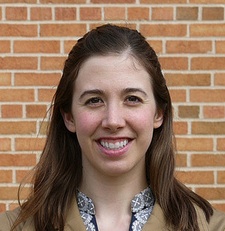 Author: Lauren T. Schudde
Author: Lauren T. Schudde
Affiliation: Teacher's College, Columbia University
E-mail: schudde@tc.columbia.edu
Abstract:
Retention and degree attainment among college students from low-income families consistently trails behind that of their more advantaged peers. Most sociological research treats postsecondary education as a “black box,” using the college degree as an input or output for understanding other phenomena. But uncovering stratifying processes occurring during college is necessary to understand the sources and remedies of inequality in degree attainment. Examining the “experiential core” of college life – the social and extracurricular world of postsecondary education – sheds light on processes in which inequalities manifest and reproduce. Using quasi-experimental methods and nationally representative data, I investigate how college experiences impact achievement and retention. Results indicate that engagement in college generally improves student outcomes. However, students from families with above-average incomes reap larger returns for college experiences than their less-advantaged peers. Students from low-income families often experience negative impacts of engagement in campus life. The heterogeneous returns to the experiential core contribute to the persistent socioeconomic inequality in collegiate outcomes in the United States.
ENVIRONMENT AND TECHNOLOGY DIVISION
Winning Title: “Sustainable Lifestyles and Environmental Activism: How Lifestyle Change Supports Collective Action”
Author: Janet A. Lorenzen
 Affiliation: Rutgers University
Affiliation: Rutgers University
E-mail: jlorenzen@sociology.rutgers.edu
Abstract:
Environmentally sustainable lifestyles have been characterized as part of “prefigurative communities” (aligning interests with social movements) or “inverted quarantines” (when environmental protection is satisfied by consumer goods at the expense of political action). To explore this contradiction I draw on 45 in-depth interviews and participant observation with three groups: (1) voluntary simplifiers, (2) religious environmentalists, and (3) green home owners. I dispute the assertion that sustainable lifestyles are apolitical or create a tradeoff with political participation or support for system-level change. Transitioning to a sustainable lifestyle is often one part of a multi-faceted approach to addressing climate change. First, my research confirms that people who are in the process of cultivating a sustainable lifestyle are often pulled or pushed into collective action through social networks. Second, activists also use lifestyle change to shore up long-term, sometimes discouraging, environmental and social movement participation. And third, I find that those who wish to avoid formal, contentious politics are drawn to sustainable lifestyles – a case of selection effects rather than causality.
Contrary to the inverted quarantine thesis, transitioning to a more sustainable lifestyle does not cause people to avoid politics. Lifestyles do not necessarily support the individualization of responsibility so much as they are a consequence of it. The result is an expansion of the tactics used to address climate change, rather than the replacement of public strategies with personal ones.
FAMILY DIVISION
Winning Title: “When Sons Become Fathers: Examining Patterns of Fathering Across Generations”
Author: Christina Diaz

E-mail: cdiaz@ssc.wisc.edu
Abstract:
Intergenerational transmissions extend across a number of family-related behaviors, including marriage timing, fertility, and divorce. Surprisingly, fewer studies investigate the origins of fathering practices. I use data on the grandfathers and fathers of the 2001 U.S. birth cohort - measured in the Early Childhood Longitudinal Study (N=4,050) - to assess whether perceptions of the parenting men received as children influences their future paternal attitudes and behaviors. I find a nonlinear association between experiencing warm fathering and men’s self-assessed parenting quality and stress. Men with particularly warm fathers are more likely to report being good fathers themselves. Those who reported having the harshest fathers also exhibit better paternal self-perceptions and lower stress. However, there is little evidence that perceptions of parenting received are associated with men’s caregiving and disciplinary actions. This research sheds light on the significance of family dynamics and how a legacy of fathering may contribute to inequality.
GLOBAL DIVISION/CRITICAL SOCIOLOGY GRADUATE STUDENT PAPER AWARD
Winning Title: “The High Price of Freedom: The Transnational Moral Economy of Low Wage Women’s Work in the Anti-Human Trafficking Movement”
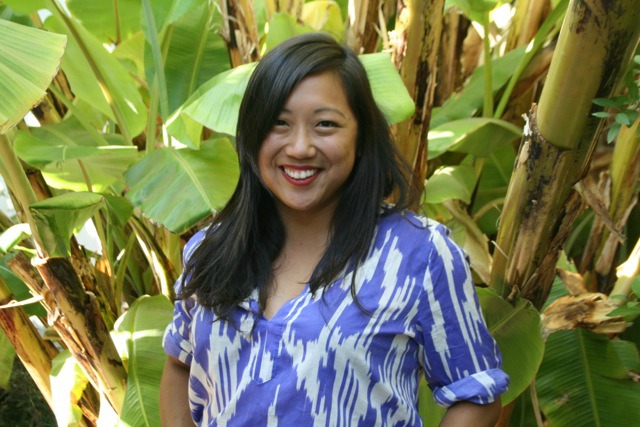 Author: Elena Shih
Author: Elena Shih
Affiliation: University of California, Los Angeles
E-mail: elenashih@ucla.edu
Abstract:
A global and multi-cited ethnography, this paper examines anti human trafficking rescue projects in Beijing, People's Republic of China, and Bangkok, Thailand and their sites of activism and organizing in the U.S. Based off 40 months of ethnographic fieldwork with evangelical Christian missionary organizations that train former sex workers to work as jewelry makers, this paper argues that despite global justice goals, efforts to rehabilitate 'victims of human trafficking' reproduce women’s global subordination at the discursive and labor process levels. Arguing that jewelry represents a proxy commodity for freedom from enslavement and a virtuous wage, these programs create a transnational moral economy of low wage women’s work, where traditional exchanges of wage for labor are replaced with affective commitments between First world rescuers and their purported victims in the global south.
Honorable Mention: “Migrant Workers in Labour Markets Gone Global: English Language Capital and the Production of Global Hierarchies”
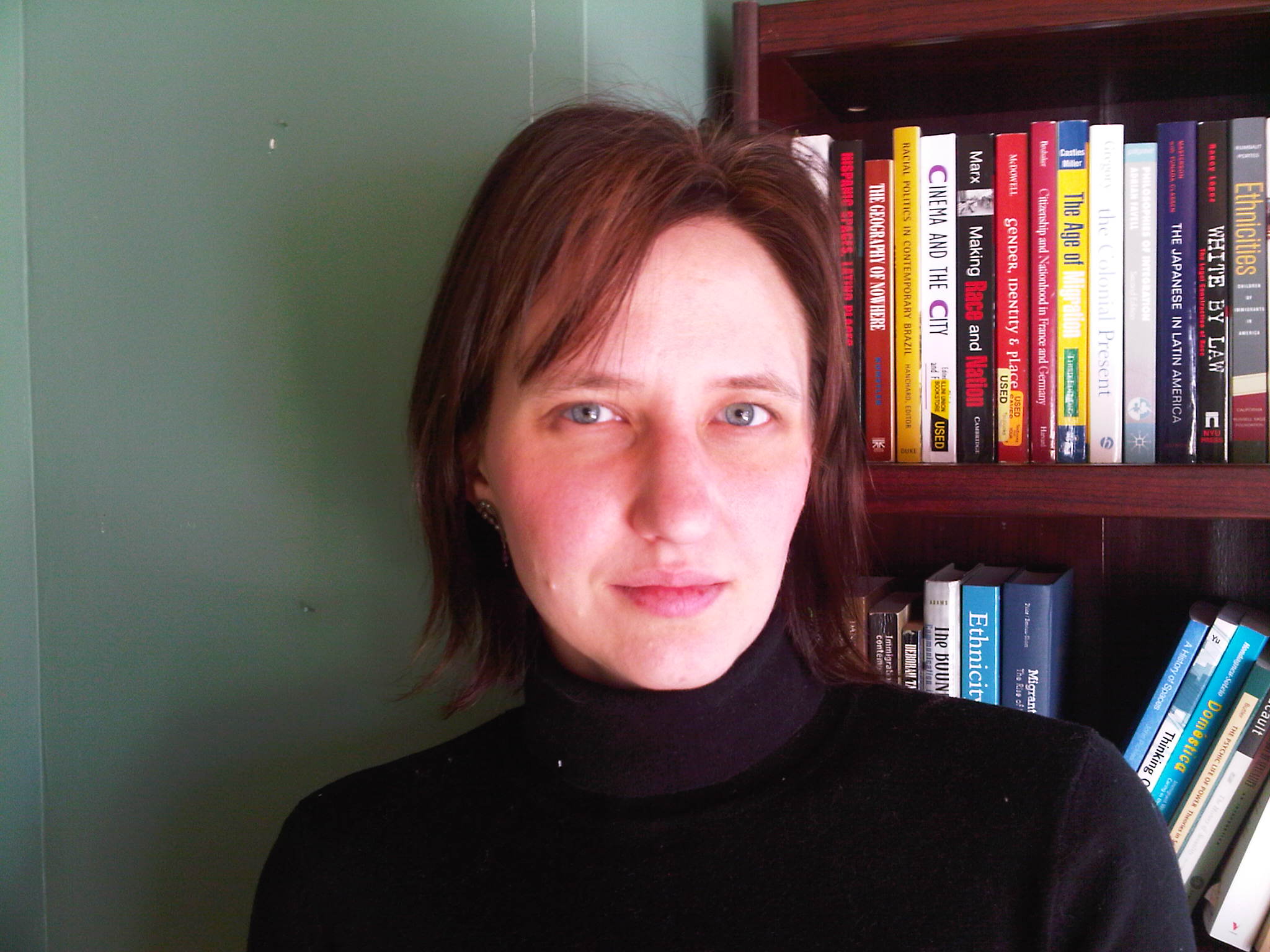
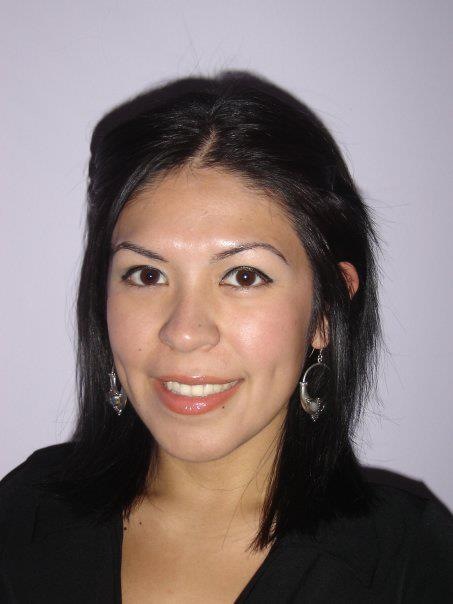
Affiliation: The University of British Columbia
E-mail: geraldinapolanco@alumni.ubc.ca and szell@geog.ubc.ca
Abstract:
This transnational collaborative study explores what happens when Canadian labour markets ‘go global.’ Drawing on multi-sited research in Canada, Mexico, and the Philippines, we examine the role of (perceived) English language competence in socially mediating labour market entry for temporary foreign workers both locally and globally. Focusing on “low-skilled”, interactive service sector occupations, we show how English language ability acts as a “border,” regulating access to global labour circuits and segmenting workers into occupational niches. English language capital acts as a marker of status and desirability, shaping and reinforcing employer preferences and expectations of workers. This has implications for the (re)organization of labour markets in sending and receiving countries as well as the mobility options available to migrant workers.
HEALTH, HEALTH POLICY, AND HEALTH SERVICES DIVISION
Winning Title: “Constructing Uncertainty, Constructing Skill: Creating New Forms of Medical Expertise through Nurse Practitioner Narrative Practices”
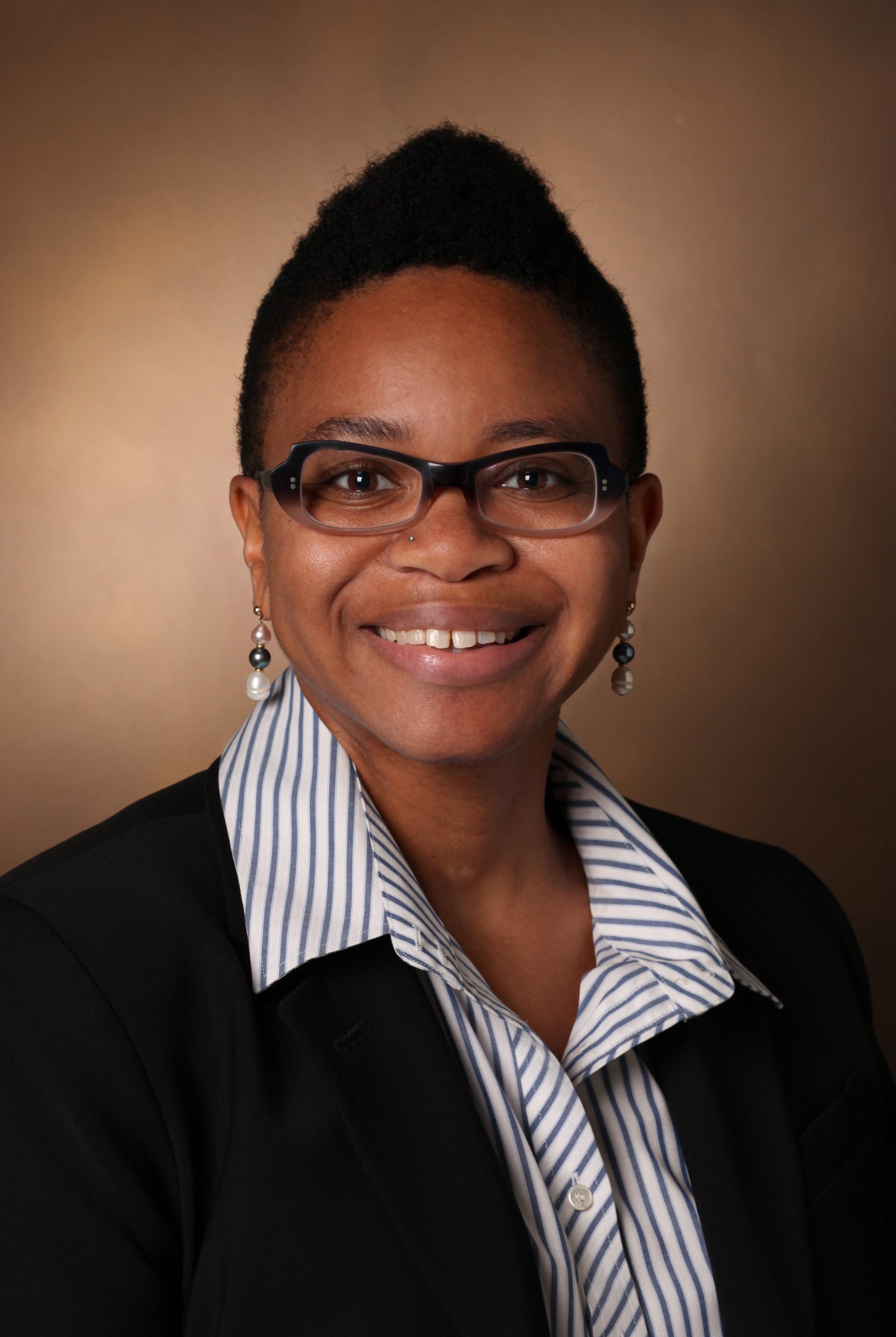 Author: LaTonya J. Trotter
Author: LaTonya J. Trotter
Affiliation: Vanderbilt University
E-mail: l.trotter@vanderbilt.edu
Abstract:
Sociologists of medicine have long investigated the intersection of physician work and the construction of patient problems. As nurse practitioners increase their presence in the exam room, our investigations may have to account for different renderings of both medical problems and how they are addressed. Drawing from ethnographic fieldwork among nurse-practitioners-training, this paper analyzes routine, formal talk about clinical cases as a way of understanding nurse practitioner expertise. A primary finding was that talk about nurse practitioner practices emphasized skills of difference from physician practice, differences that had consequences not simply for nurse practitioner professional identity, but for notions about the practical performance of clinical work. This paper provides an empirical look at a group of overlooked clinicians whose understandings of what they do has important implications for our current understandings about both medical work and patient care.
Honorable Mention: “Beyond Access: Social Networks and the Use of Free Health Care Services”

 Authors: Kathleen C. Oberlin and Oren Pizmony-Levy
Authors: Kathleen C. Oberlin and Oren Pizmony-Levy
Affiliation: Indiana University-Bloomington
E-mail: kocberli@indiana.edu and pizmony-levy@tc.columbia.edu
Abstract:
While sociologists recognize the role of socio-demographic characteristics and social networks for the utilization of health services, less is known about these factors once we move beyond the major obstacle, health insurance or the lack thereof. Further, little is known about the effect of these factors across services that differ in their complexity and demand for patient engagement, such as primary care, dental care, and specialty care. To address these gaps, we use original survey data from 1,044 patients of a free health care clinic. Results suggest that social networks have significant effects on the utilization of specialty care services, but not on primary care services. Socio-demographics have limited effects on the utilization of these services at a free clinic. We discuss these results in the larger context of community organizations and free clinics’ important role in strengthening the broader social safety-net.
INSTITUTIONAL ETHNOGRAPHY DIVISION
Winning Title: “Towards an Institutional Counter-Cartography of Nurses’ Wound Work”
 Author: Nicola R. Waters
Author: Nicola R. Waters
Affiliation: University of Calgary
E-mail: nicola.r.waters@gmail.com
Abstract:
Under the banner of continuous quality improvement, process mapping has become an increasingly routine feature of healthcare administration. Driven by demands to improve efficiency through standardization, nurses’ knowledge of their, often unpredictable, work is routinely changed to fit within graphical representations that depict it as objectively controllable. It is the tensions that arise as I try to apply my knowledge as a specialist nurse in the rapidly changing area of wound care that form the direction for my institutional ethnography (IE) inquiry. As a student new to IE, my search for a way to articulate my use of Dorothy Smith’s alternative sociology to unpick how nurses’ wound work is being mapped, drew me to explore the ruling relations embedded in cartographic practices. The parallels I discovered between the ‘counter-cartography’ movement and the problematic emerging in my own study helped me to recognize how using IE offers the potential to draw a quite different picture of nurses’ wound work, one which challenges the official versions of their world on paper.
LABOR STUDIES DIVISION
Winning Title: “Making the Intern Economy: Role and Career Challenges of the Music Industry Intern”
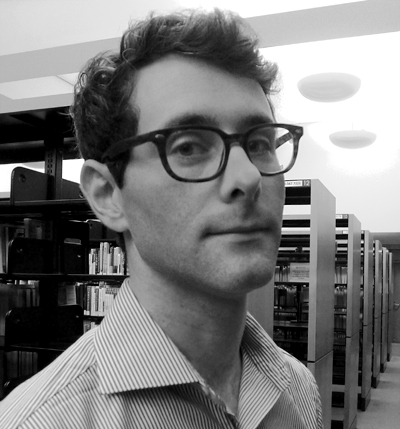 Author: Alexandre Frenette
Author: Alexandre Frenette
Affiliation: City University of New York, Graduate Center
E-mail: afrenette@gc.cuny.edu
Abstract:
This article focuses on a major host of unpaid intern labor—the music industry—to examine how internships function as a challenging, intermediary step for individuals attempting to launch careers. Based on interviews and participant observation, the author finds that ambiguity plays an important role in producing and maintaining the intern economy. The author uses the term provisional labor to describe the temporary, conditional, and ambiguous standing of interns, as they simultaneously build their employability and provide inexpensive labor. The case study reveals why aspirants encounter varying opportunities in their internships, which may differ from their respective hopes, expectations, and career aspirations.
LAW AND SOCIETY DIVISION
Winning Title: "States of “Illegality”: How Moralizing and Criminalizing Regimes Shape Undocumented Migrants’ Subjectivities"
 Author: Abigail Andrews
Author: Abigail Andrews
Affiliation: University of California, Berkeley
E-mail: abigailandrews@berkeley.edu
Abstract:
This paper considers how local-level immigration enforcement affects undocumented migrants, leading some to struggle for inclusion while others withdraw from U.S. society. Recent studies call attention to the role of the state in producing migrant “illegality.” I add to this research by showing that state practices foster marginality through two different logics. Drawing on in depth interviews and observation of similar undocumented Mexican communities in Los Angeles County and North County San Diego, I develop two ideal types. In the “moralizing” type, based on LA, policing of immigrants is discerning, so migrants believe the state judges between “good immigrants” and “bad immigrants,” fostering a sense of control and partial incorporation, primarily through hard work. In turn, migrants protest by demanding greater inclusion. Meanwhile, in the “criminalizing” type, based on North County, policing is arbitrary, instilling fear and alienation, blocking migrants from public services, and marking them as criminals. As a result, migrants feel excluded, take a stoic, temporary mentality at work, and express dissent through exit. While struggles over the treatment of immigrants produce diverse local policing practices across the U.S., these ideal types help parse out seeming contradictions in existing literature on “illegality” and migrant incorporation.
SOCIETY AND MENTAL HEALTH DIVISION
Winning Title: “Social Support and Health: The Role of Ethnicity and Nativity among Black Americans”
Author: Christy L. Erving
 Affiliation: Indiana University, Bloomington
Affiliation: Indiana University, Bloomington
E-mail: cerving@indiana.edu
Abstract:
Despite an abundant literature on social support and health, little is known about how support and its impact on health vary within the Black population. Using the National Survey of American Life (NSAL), this paper examines which sources and types of support are related to mental and physical health among African Americans, U.S.-born Caribbean Blacks and foreign-born Caribbean Blacks; it also addresses how the social support-health relationship varies across measures of physical and psychological well-being. The results revealed that negative interactions with family members consistently predicted worse mental health across all three groups. Despite some consistent findings, there were some notable differences. For example, the effects of receiving support from fictive kin varied in magnitude and direction for African Americans and Caribbean Blacks. In general, this paper demonstrates the importance of ethnic and nativity distinctions in understanding the social epidemiology of health within the Black population.
POVERTY, CLASS, AND INEQUALITY DIVISION
Winning Title: “Post-Recession Governmentalities: Neoliberalism, Job Searching, and Comparative Control in Minneapolis”
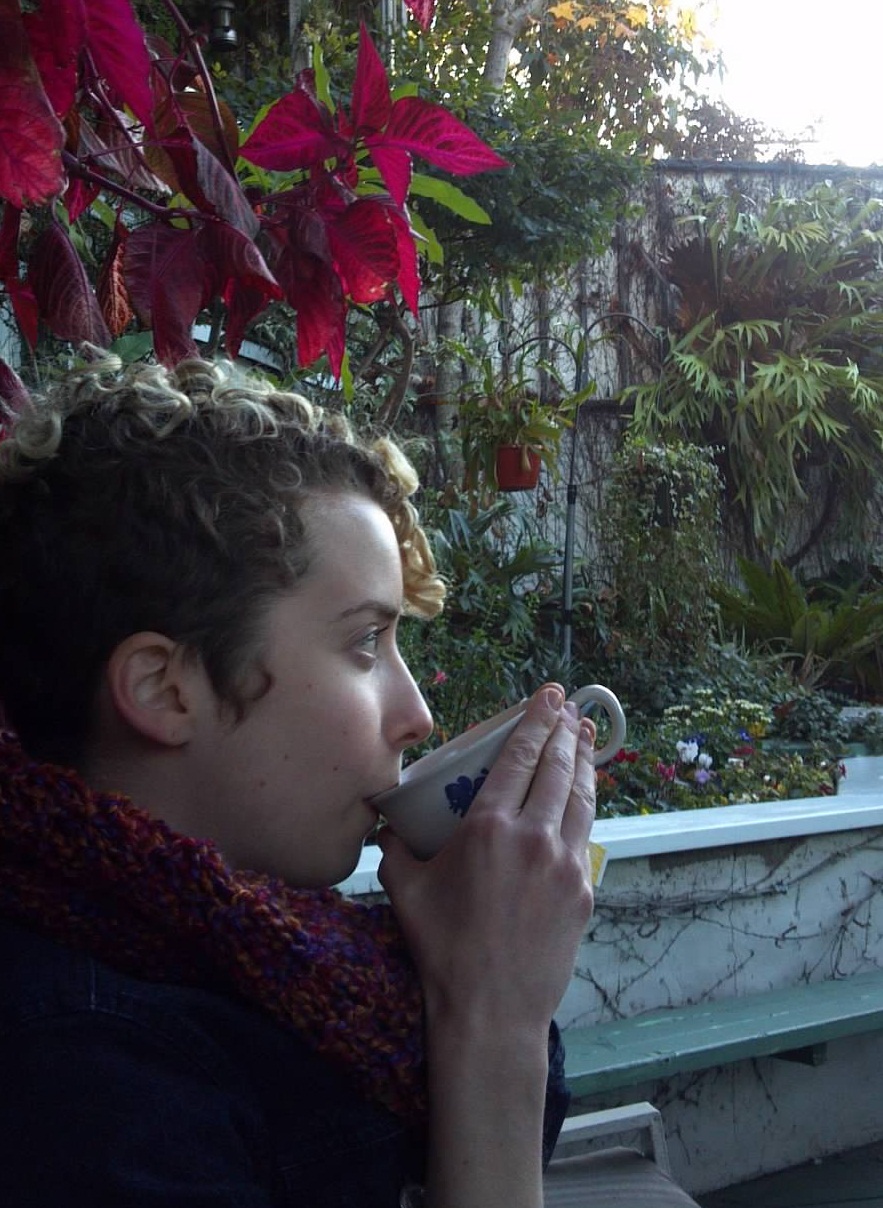 Author: Madison Van Oort
Author: Madison Van Oort
Affiliation: University of Minnesota
E-mail: vanoo009@umn.edu
Abstract:
This comparative ethnographic study charts the similarities and differences in crafting the job search enterprise following the Great Recession at two nonprofit programs in Minneapolis: Career Net, a support group for middle-class job seekers, and Good Deeds, a welfare-to-work service. Both programs attempted to create flexible, productive, and disciplined job seekers, but this unique comparison reveals how these organizations differently reproduced neoliberal subjectivities: Career Net helped participants actively re-craft their personal and professional selves through personal branding and social networking, training participants to become self-entrepreneurs. Good Deeds, on the other hand, took a more top-down approach to controlling client behavior, relying on program requirements and sanctions to keep clients in line and shuffle them into low-wage work. Cohering along lines of race and class, Career Net and Good Deeds underscored the demands of employability and further tipped the power scales in the interest of capital.
RACIAL AND ETHNIC MINORITIES DIVISION
Winning Title: “Jim Crow in Jail: Race as a Mechanism of Social Control in a Penal Institution”
Author: Michael Lawrence Walker
 Affiliation: University of California, Riverside
Affiliation: University of California, Riverside
E-mail: michael.walker@ucr.edu
Abstract:
The sociology of penal communities has not kept pace with studies of the cumulative effects of mass incarceration. We know comparatively little of the everyday experiences of men inside penal walls relative to what happens to families, children, individuals, and communities once a family member is released from incarceration. Few studies of carceral living have explicitly considered the role of race relations in maintaining or upsetting the social order of inmate life. This study seeks to fill these gaps. The fieldnotes were collected during the fall of 2006 through the spring of 2008 using participant observation in a Southern California jail system. Evidence suggests that jail policies and procedures played a critical role in the creation and maintenance of race-based organizations of inmates that sustained Jim Crow-like rules for social interaction.
Honorable Mention: “Creating a Shanghainese Ethnicity: How a Regional Difference Accelerated into an Ethnic Difference”
Author: Fang Xu
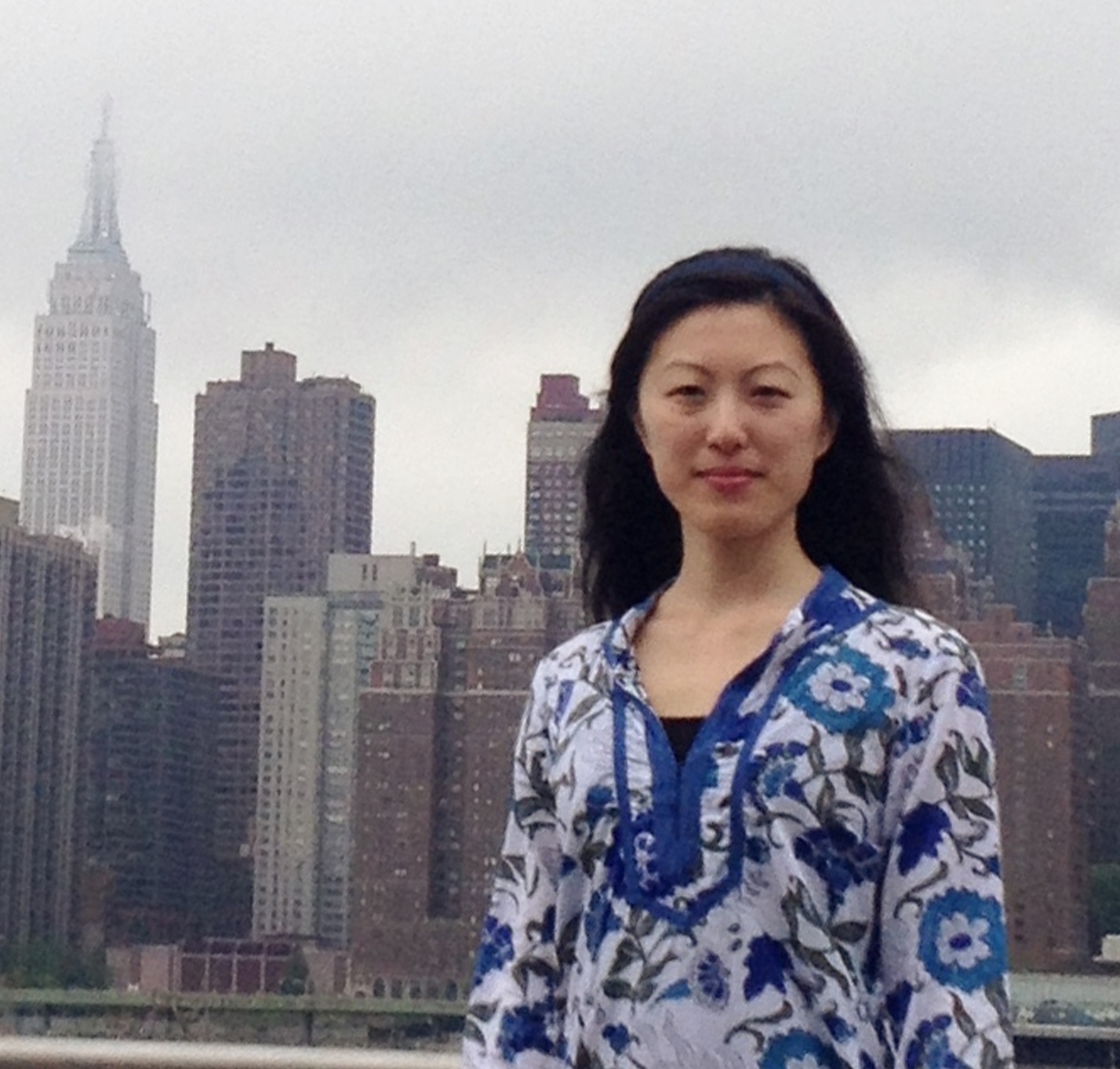 Affiliation: Graduate Center, City University of New York
Affiliation: Graduate Center, City University of New York
E-mail: fxu@gc.cuny.edu
Abstract:
In China’s economic reform era, internal migration as a characteristic of Shanghai’s demography has contributed to prosperity of the city. According to the 2010 census, the population in Shanghai reached 23 million, among which roughly 9 million are born elsewhere, counting 39 percent. Their presence is perceived to have post threats to the native Shanghaineses’ claims on job markets, public space, and social services. The tension is recently heightened by the Shanghai Municipal Government’s strategically designed social welfare policies to cover those non-native Shanghaineses. To achieve the goal of constructing Shanghai into a “global city” of finance and culture, the municipal government needs to embrace investment and workforce from home and abroad, without challenging the native Shanghaineses’ claim on social services and welfare benefits. Through a deep reading of the social welfare policies, I will show that despite its all fairness appearance, the social welfare policies in the 1990s and 2000s in Shanghai essentially discriminate the non-natives, systematically reproduced inequality between the native and non-native Shanghainese, and eventually create an exclusive Shanghainese ethnicity. My findings show that the tiered social welfare system in Shanghai legitimated by the differentiated status of individuals’ Hukou, residual of the Household Registration System implanted in the Maoist era, is a type of governmentality mitigates the tension between the native and non-native Shanghainese, in order to achieve unprecedented economic growth, without jeopardizing political and social stability. This alarming reality of institutionally creating a place-bound ethnicity urges policy makers to pay attention to the social and cultural consequences of economic development and urban transformation in China and beyond.
SEXUAL BEHAVIOR, POLITICS, AND COMMUNITIES DIVISION
Winning Title: “The Sexual Double Standard, Sexual Relationship Contexts, and Adolescent Mental Health”
 Author: Brian J. Soller
Author: Brian J. Soller
Affiliation: University of New Mexico
E-mail: bsoller@unm.edu
Abstract:
Few studies have tested whether features of adolescent contexts alter the association between sexual intercourse and psychological well-being. This study considers whether school-based sexual double standards alter the association between sexual intercourse, gender, and adolescent mental health. Using two waves of Add Health data, I measure one particular aspect of the sexual double standard by quantifying within-school differences in boys’ and girls’ perceptions of the social benefits of sexual intercourse. I find that girls who had sexual intercourse are more likely to report severe depression as the sexual double standard increases. Conversely, boys who engaged in sexual intercourse with one or more non-romantic partners are more likely to report high self-esteem as the sexual double standard increases. Results demonstrate the importance of culture in determining how sexual activity affects subsequent well-being.
SOCIAL PROBLEMS THEORY DIVISION
No award given
SOCIOLOGY AND SOCIAL WELFARE DIVISION
Winning Title: “Revising the Welfare Queen: Calling for a New Approach to Welfare Analysis”
 Author: Nicole D’Anna
Author: Nicole D’Anna
Affiliation: University at Albany, SUNY
E-mail: ndanna@albany.edu
Abstract:
Welfare discourse in the U.S. takes place almost wholly within a gendered-racist and class-based framework that is held in place and perpetuated by familiar and powerful public identities and controlling images (e.g., the "Welfare Queen"). By reorienting public thinking to include welfare participants and the poor as full citizens "deserving" of resources and support, the policy discourse can be revised to promote legislation and programs that aim to ameliorate poverty. In order to achieve this policy revision, the Welfare Queen myth and similar stigmatizations must be replaced with a nuanced understanding of poor individuals and their needs. The development of this understanding can and should be achieved through the adoption of an intersectional research paradigm. This paper begins to address two gaps in the literature by making a clear call for intersectional research and by explicitly discussing welfare participants as citizens. Welfare participants can be offered pathways out of poverty through formal education and job training; state welfare programs can conduct analyses to identify areas of regional labor market demand to help target opportunities. As a starting point, I discuss examples of education/training options available to welfare participants through several state welfare programs and conclude with suggested future research.
SPORT, LEISURE, AND THE BODY DIVISION
Winning Title: "Shining Stars, Blind Sides, and “Real” Realities: Exit Rituals, Eulogy Work and Allegories in Reality Television"


 Authors: Lisa-Jo van den Scott, Clare Forstie, and Savina Balasubramanian
Authors: Lisa-Jo van den Scott, Clare Forstie, and Savina Balasubramanian
Affiliation: Northwestern University
E-mails: ljvandenscott@u.northwestern.edu; cforstie@u.northwestern.edu; SavinaBalasubramanian2015@u.northwestern.edu
Abstract:
Reality television has become a pervasive part of contemporary culture. We identify three categories, or spheres, of contestant-elimination reality shows; External Vote, Internal Vote, and Choosing Individual/Deity. Within each of these spheres, we examine the locus of blame and the structure of the show as contexts for the elimination as symbolic death. This symbolic death presents allegories of loss of fame, social isolation, and individual loss of job, career, or love across these spheres. Contestants perform eulogy work in order to cope publicly with their elimination (“death”) at the moment of exit. Eulogy work enables departing contestants to frame their “death” as a good death and to “cool themselves out” in an attempt to save face. In this way, contestants deal with conceptions of self in the show and the transfer of hat self back to a reality outside of the bracketed time and space of the show.
TEACHING SOCIAL PROBLEMS DIVISION
No award given
YOUTH, AGING, AND THE LIFE COURSE DIVISION
 Winning Title: “Breaking the Pattern: Youth Authority in the Wisconsin Uprising”
Winning Title: “Breaking the Pattern: Youth Authority in the Wisconsin Uprising”
Author: Matthew Kearney
Affiliation: University of Wisconsin-Madison
E-mail: mkearney@ssc.wisc.edu
Abstract:
Patterns of social action are disrupted in times of upheaval. Investigating these disruptions illuminates both the conditions of social change and, by way of contrast, the structure of a social system in periods of stability. So it is sociologically generative to analyze a case in which normal practice was violated due to some larger upheaval of dominant social patterns. In 2011, Wisconsin witnessed one of the largest sustained protests in the history of the United States. Focusing on the single most influential protester, I argue that she was an illustrative case of the capacity of inexperienced youth to become highly influential in exceptional situations.
